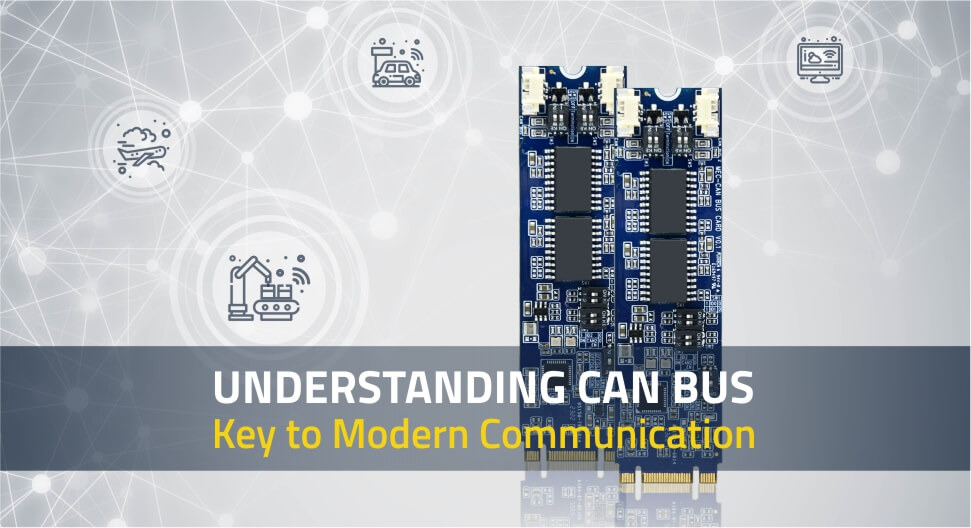BLOG
2023.10.18
Understanding CAN Bus: Key to Modern Communication
SHARE
Amid the rapid advancements in modern technology, the connectivity of various devices has grown increasingly crucial. Controller Area Network (CAN) technology, a pivotal communication protocol, not only plays a vital role in the automotive sector but also holds significance in various other domains. This article delves into the fundamentals and applications of CAN Bus and explores Cervoz's latest CAN Bus expansion card, providing you with comprehensive insights into this exciting technology.
What is CAN Bus
Let's start with the basics: a vehicle bus, often referred to simply as a bus, is an internal communication network connecting various components within a vehicle. Now, enter the Controller Area Network, or CAN Bus, a unique type of bus that empowers electronic control units (ECUs) or nodes to communicate directly with each other's applications without relying on a central computer.
The effectiveness of the CAN Bus lies in its message-based protocol, where each message sent by a node carries an identifier that predefines its priority. This allows nodes to assess the importance of each message, ensuring efficient communication.
CAN Bus, much like RS-485(but still have some differences, which we will compare in more detail in the future), offers enhanced noise immunity through differential signaling and features built-in error detection, error node isolation, and automatic message re-transmission. It also supports variable bit rates set during network initialization.
Topology of CAN Bus
Benefits of Using CAN Bus
Applications of CAN Bus
Automotive Electronics
The application scope of CAN Bus in vehicles is extensive, ranging from engine control and instrument panels to safety systems and entertainment units. Its high-speed transmission and reliability enable real-time communication among various in-vehicle devices, enhancing both driving experiences and vehicle performance.

Industrial Automation
In the industrial realm, CAN Bus connects a range of automated devices, from robots to production line monitoring systems. This real-time communication capability facilitates efficient collaboration among factory equipment, boosting production efficiency.
Aerospace
CAN bus systems streamline communication and control in spacecraft, enhancing reliability and enabling real-time monitoring and control in UAVs.

Embedded Systems
CAN Bus in embedded systems facilitates connections among diverse devices, such as smart home systems, medical devices, and consumer electronics. This connectivity enables seamless data exchange and control among devices.
Conclusion
As modern technology continues to advance, communication capabilities are becoming increasingly pivotal. CAN Bus, a communication technology widely applicable across multiple domains, has become an indispensable component of contemporary systems. Cervoz's CAN Bus PCIe expansion card further enriches connectivity solutions, providing enhanced flexibility and efficiency to various applications.
Whether you work in the automotive, industrial automation, or embedded systems sector, comprehending the fundamental principles of CAN Bus and its diverse applications will empower you to harness this dynamic technology effectively. Take a moment to explore Cervoz's latest product offerings, injecting innovation and reliability into your projects.
Follow us on LinkedIn to stay on top of news and information from Cervoz.









